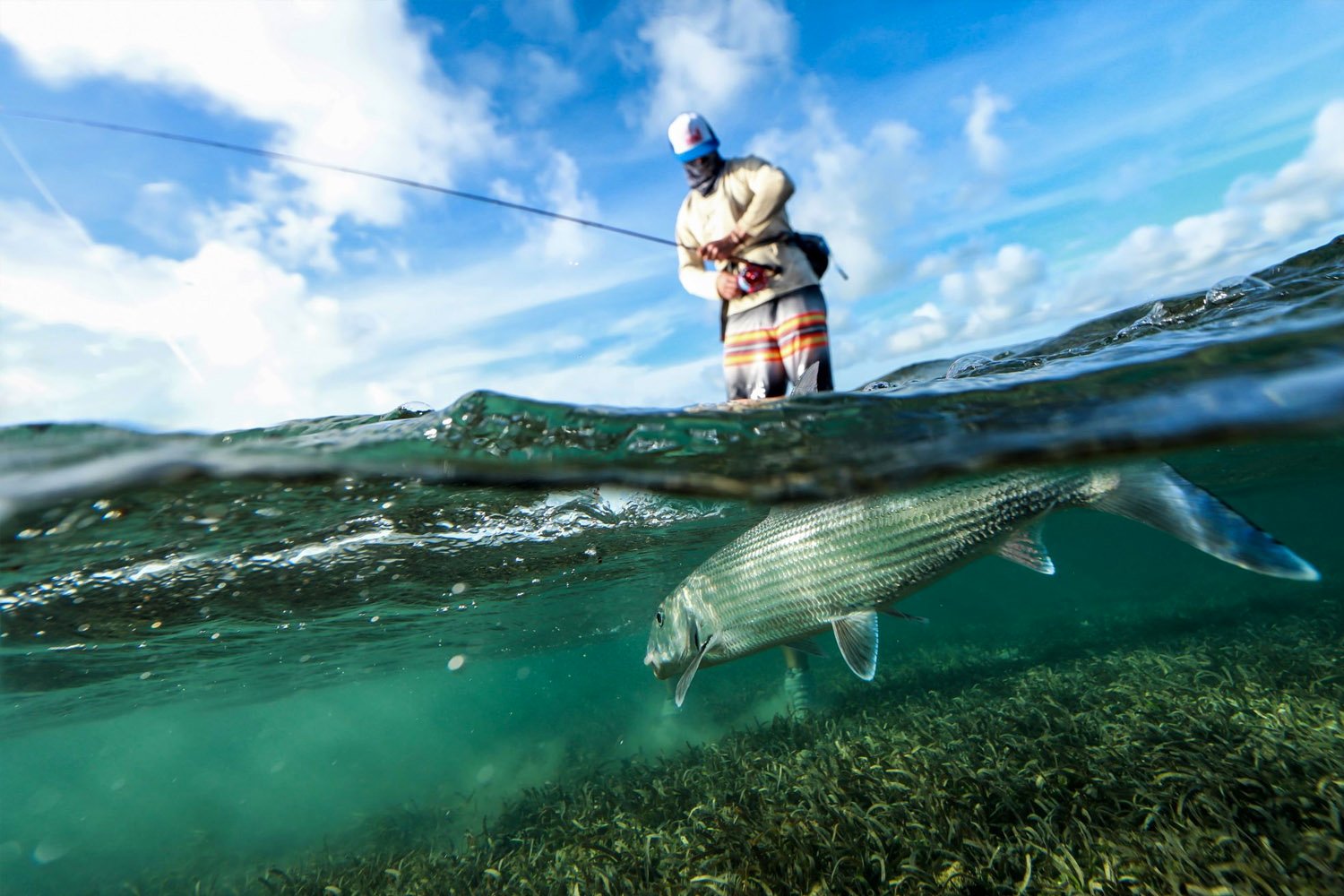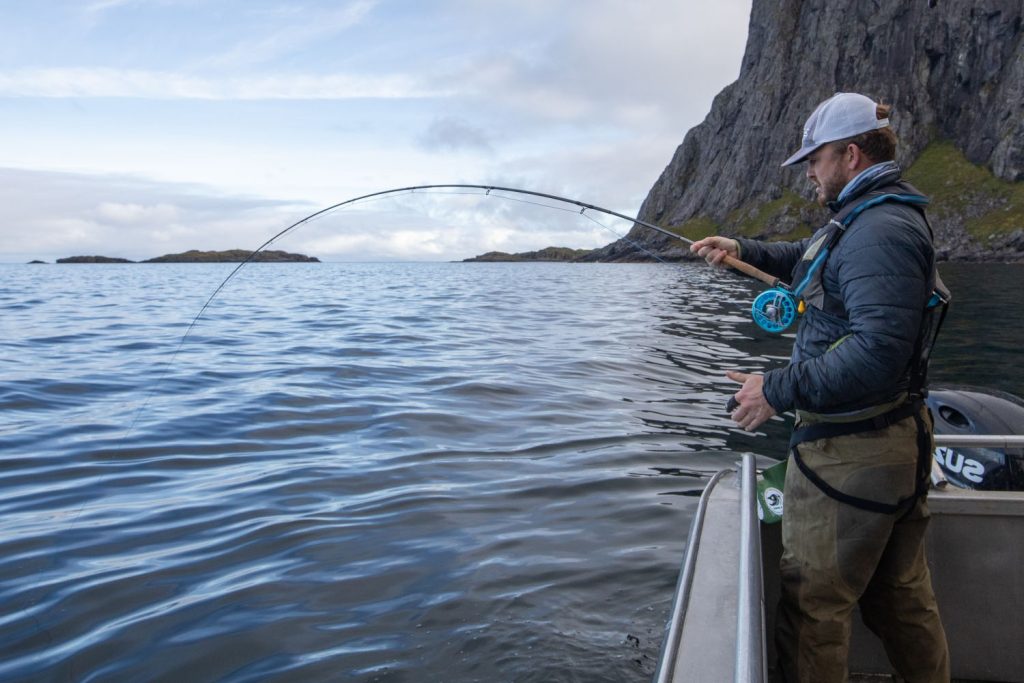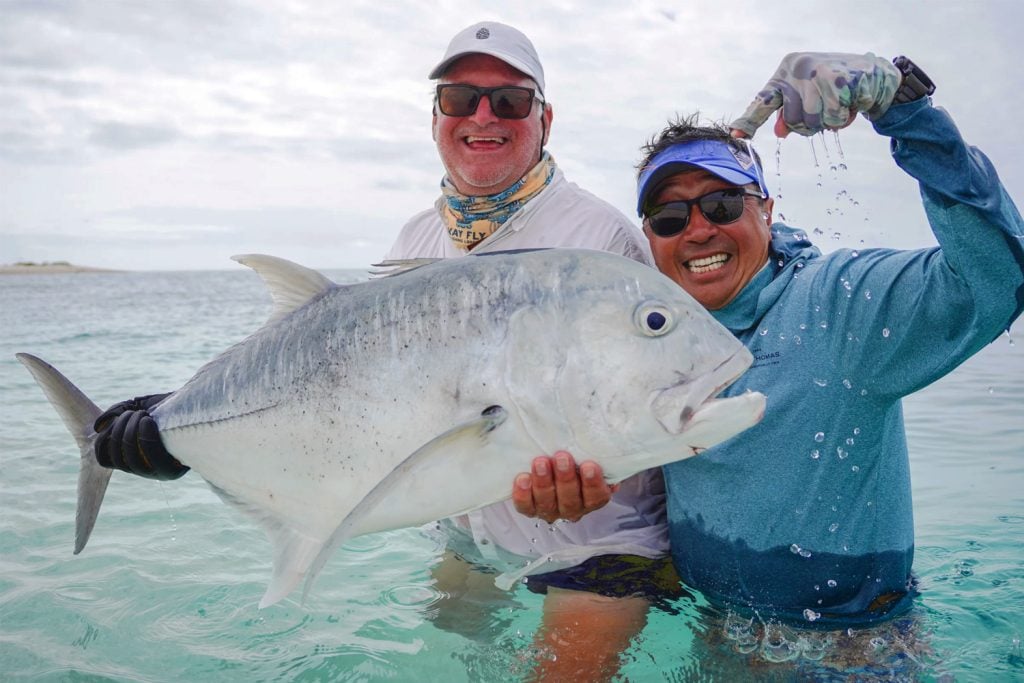There are several things to consider with regards to casting at fish in skinny clear water with a fly rod. Fish in this kind of water are particularly susceptible to spooking and any angler wishing to be successful when targeting these fish should try their utmost to prevent ‘the spook’.
The Cast
This is probably the single most common way that fly anglers spook fish, When we learn to cast we practice feeling the load of the cast and increasing line control with the false cast. This false cast often develops into a habit where anglers believe the more false cast they can put in the further the line is going to travel once released, something I like to call the “wind up clock method.”
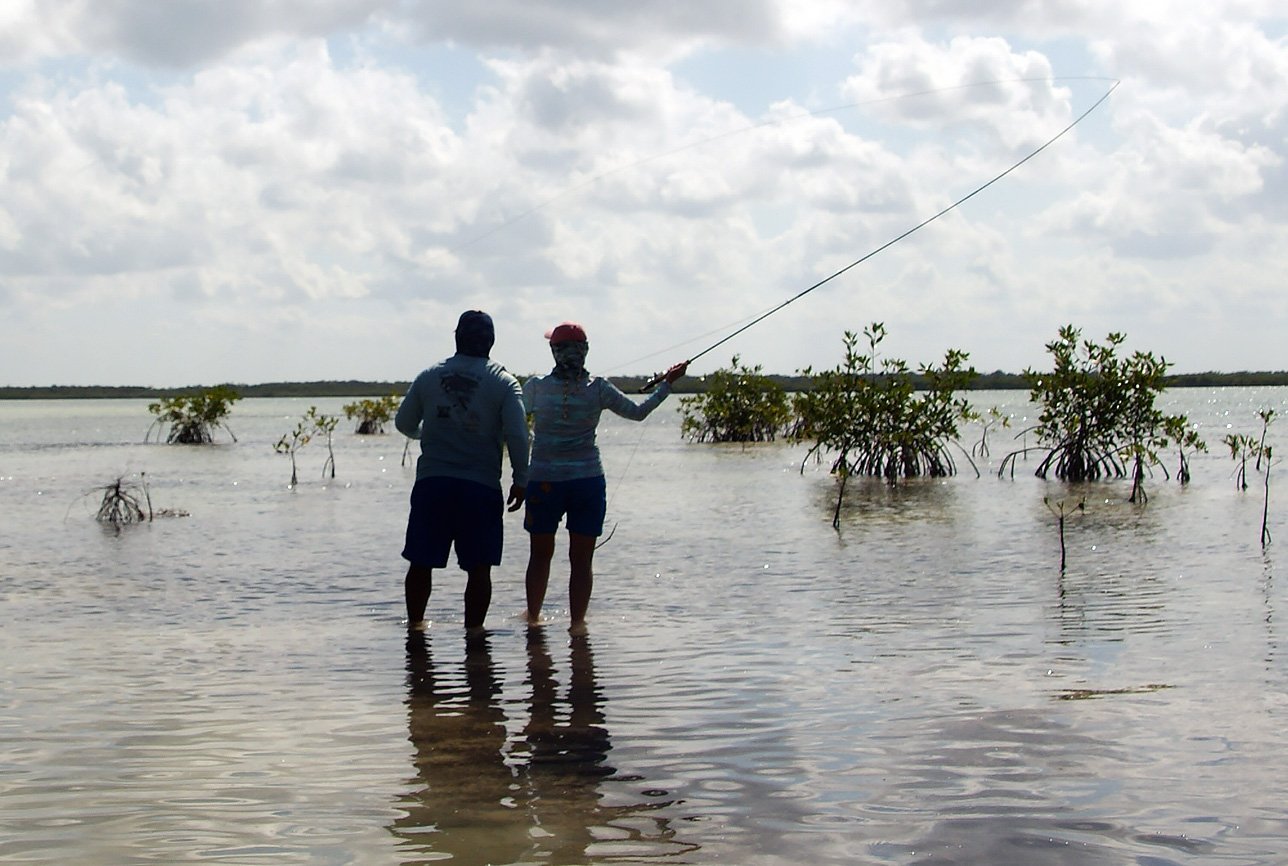

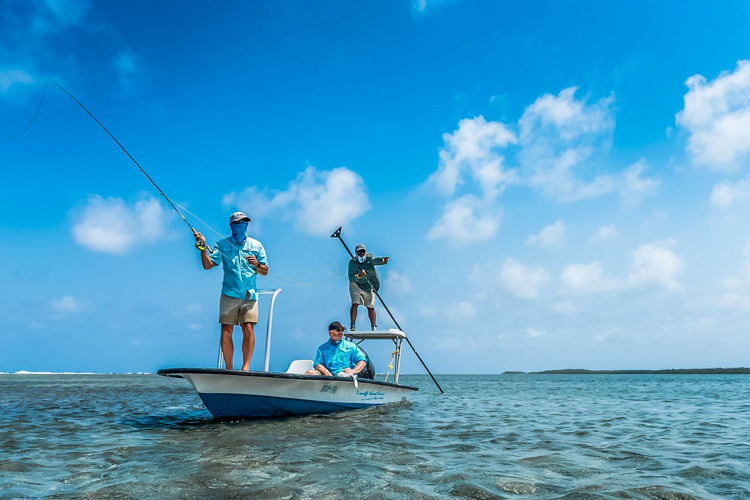

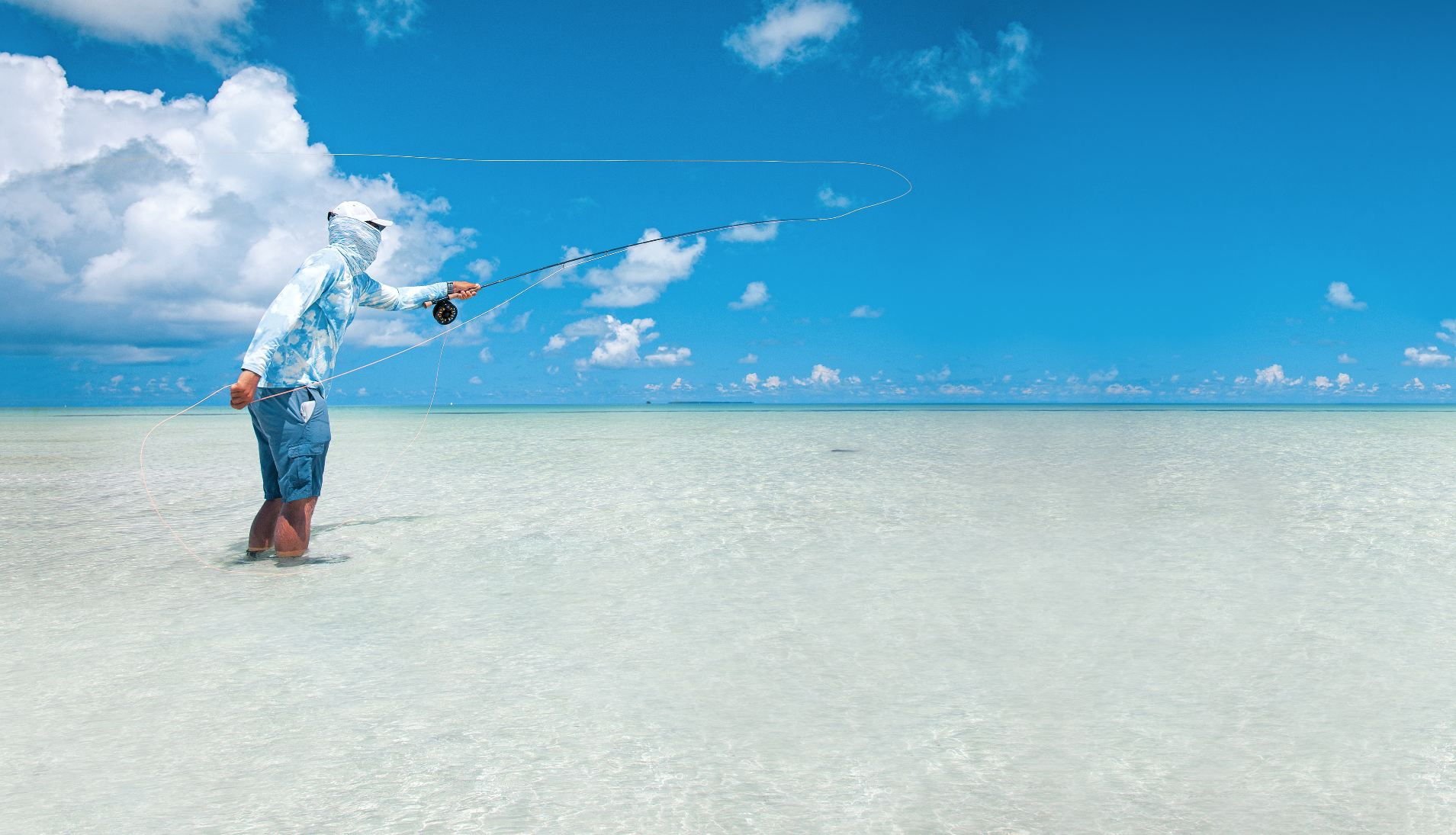

When anglers eventually get on the water and look to cover a fish this winding up of the clock method can be a real problem, every additional false cast is resulting in more chance of upsetting the fish. A better way of casting at fish is to learn to shoot line with as little false casting as needed, single and double hauls can help to achieve this as well as using the water from the lift after a retrieve to load the backhaul something known as water loading.
If multiple false casts are ever needed try to think about the direction of the false cast, if the false casts are placed off to the side of the fish with a change of direction for the placement then the chances of spooking are much less than false casting right above the head of the fish.
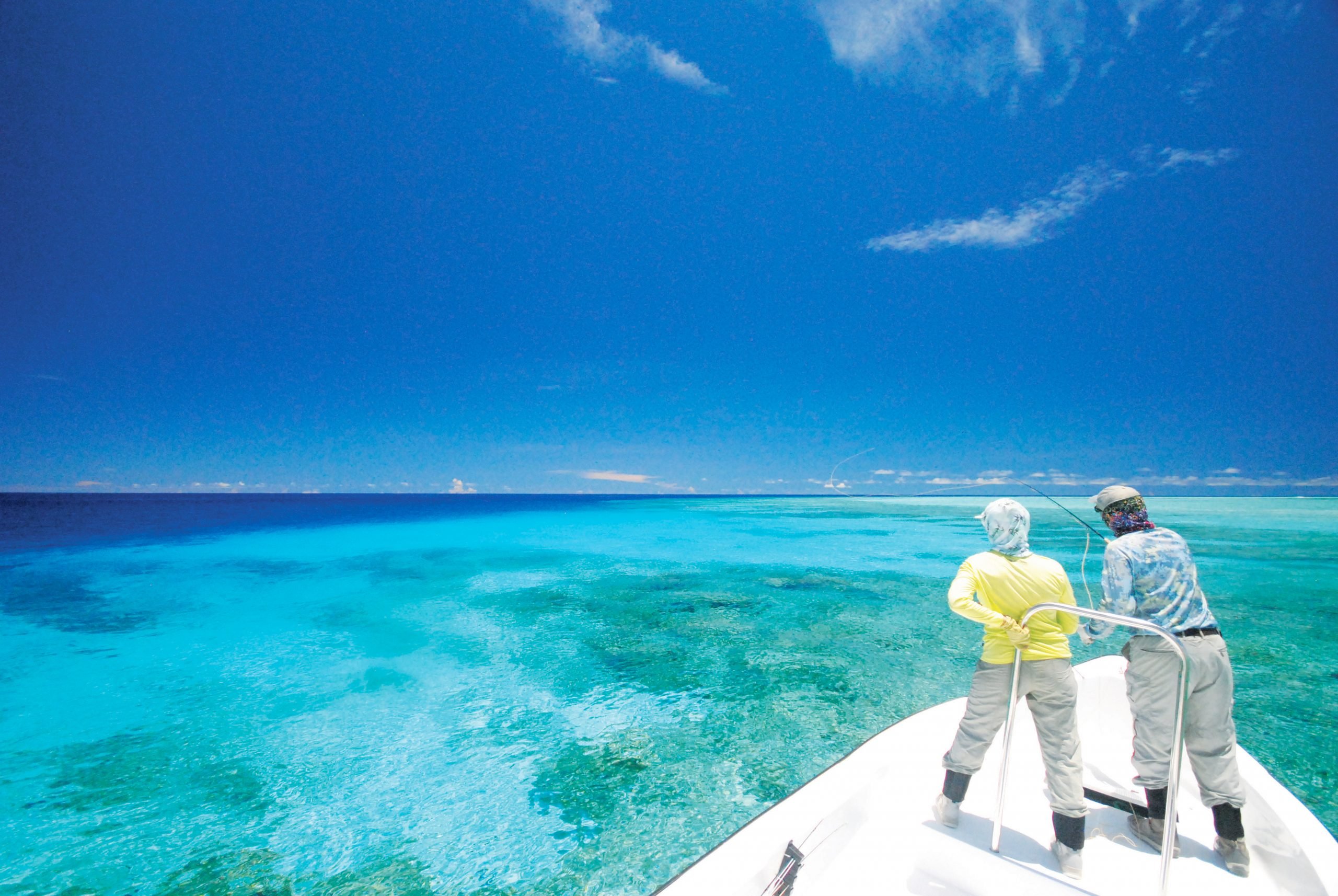

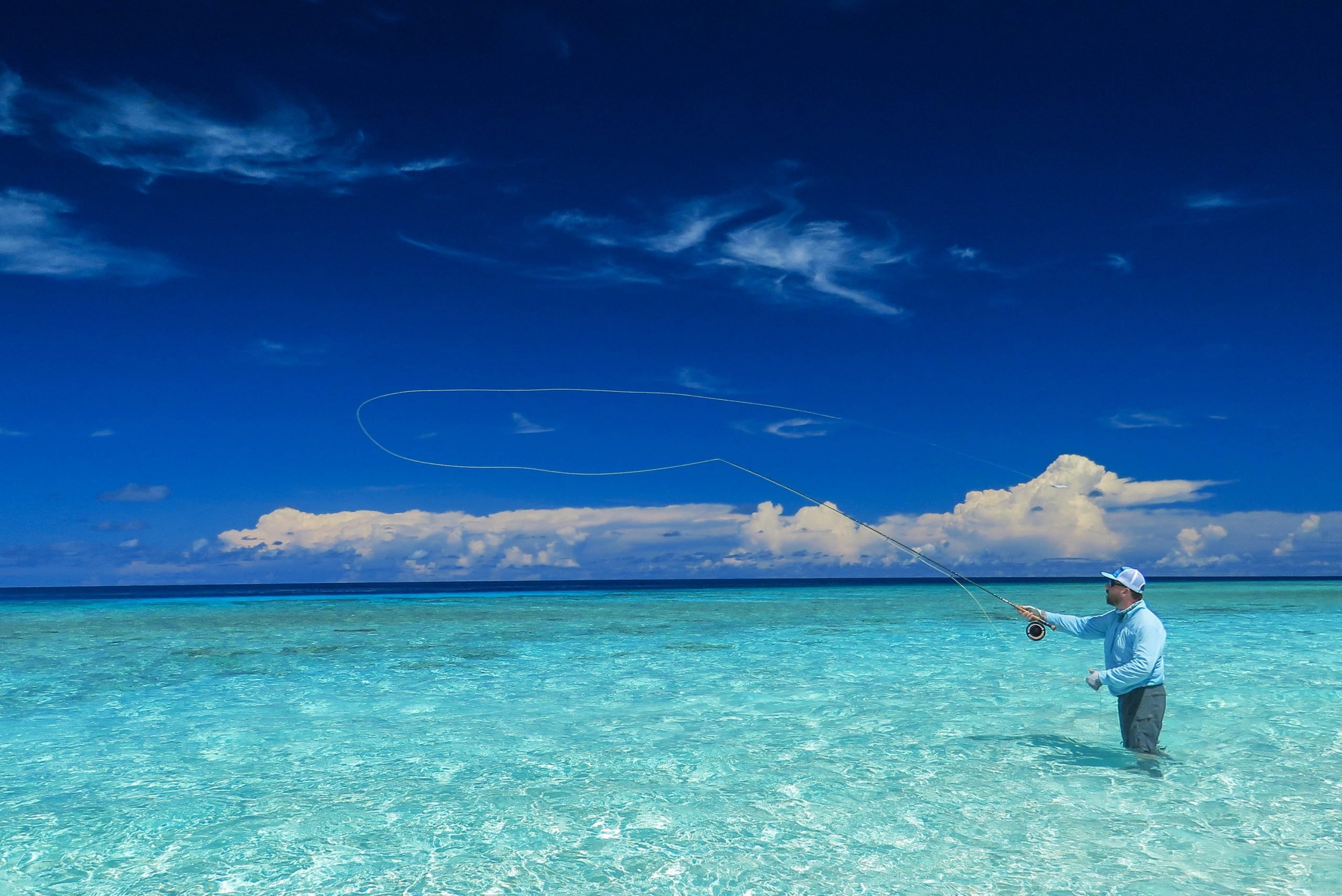

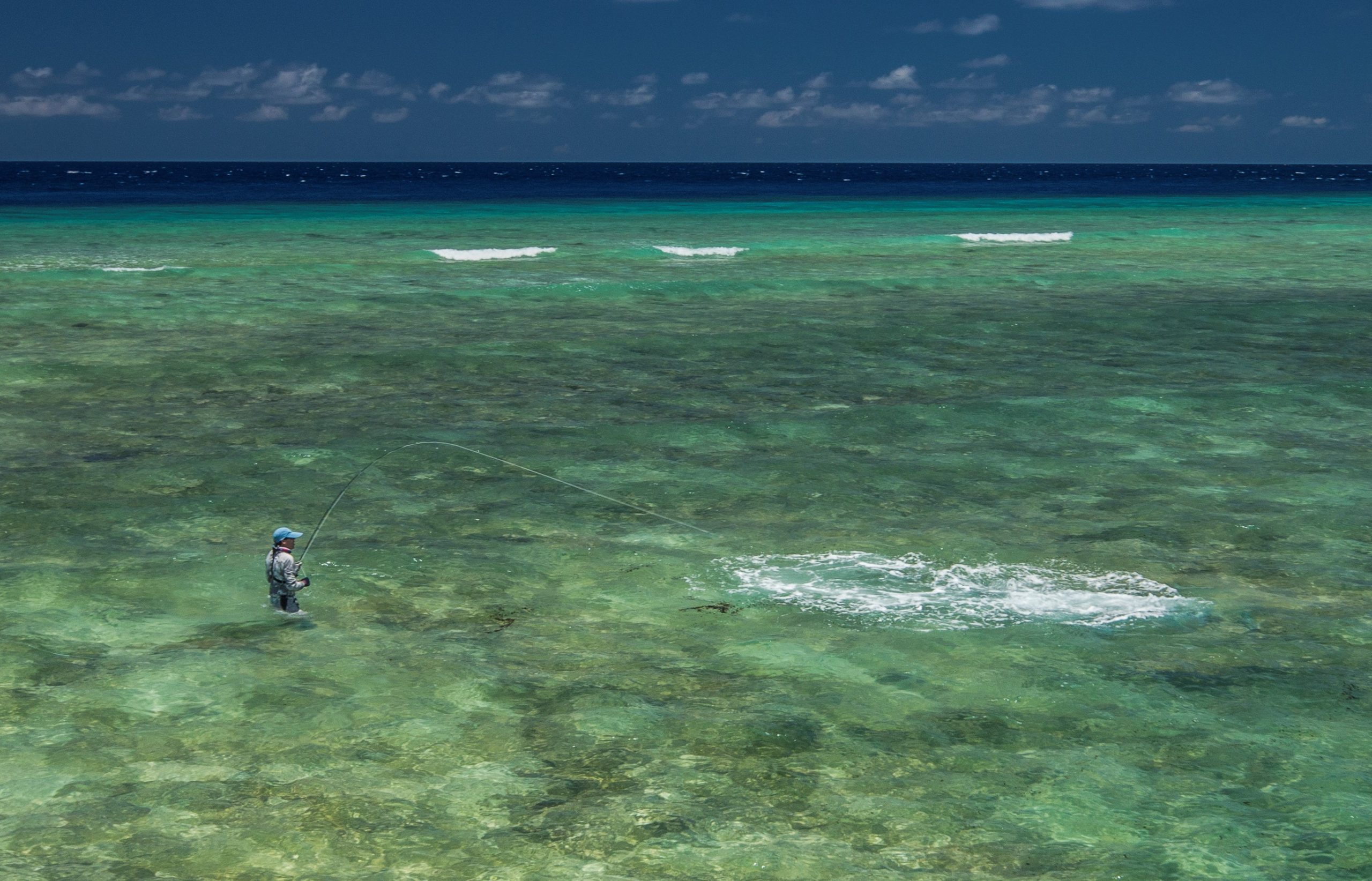

The Line
The type of line that you choose can make a huge difference to not spooking fish, a great deal of saltwater fly lines are aggressively tapered to allow casting big heavy flies in strong winds but for many flats fishing situations these lines are not needed, these types of lines will actually make fly presentation tougher and can lead to spooked fish. When choosing your fly line try and look for lines that are coated in a dull coating that will cause less of a line flash than shiny ones. Some good lines that I would recommend for this kind of fishing would be
- Rio Direct Core Flats Pro
- Rio Tropical series Permit
- Hardy Tropical Flats Series
Cast Length
The length of your cast is an important factor when trying not to spook fish, the further away you can keep your fly away from your fly line the better but it needs to be short enough to enable you to put some distance and accuracy on your cast. Fluorocarbon has led the way in tippet/cast material in recent years mainly due to its invisible properties but be warned, if fishing very tiny floating flies, fluorocarbon can affect its presentation as it sinks in the water.
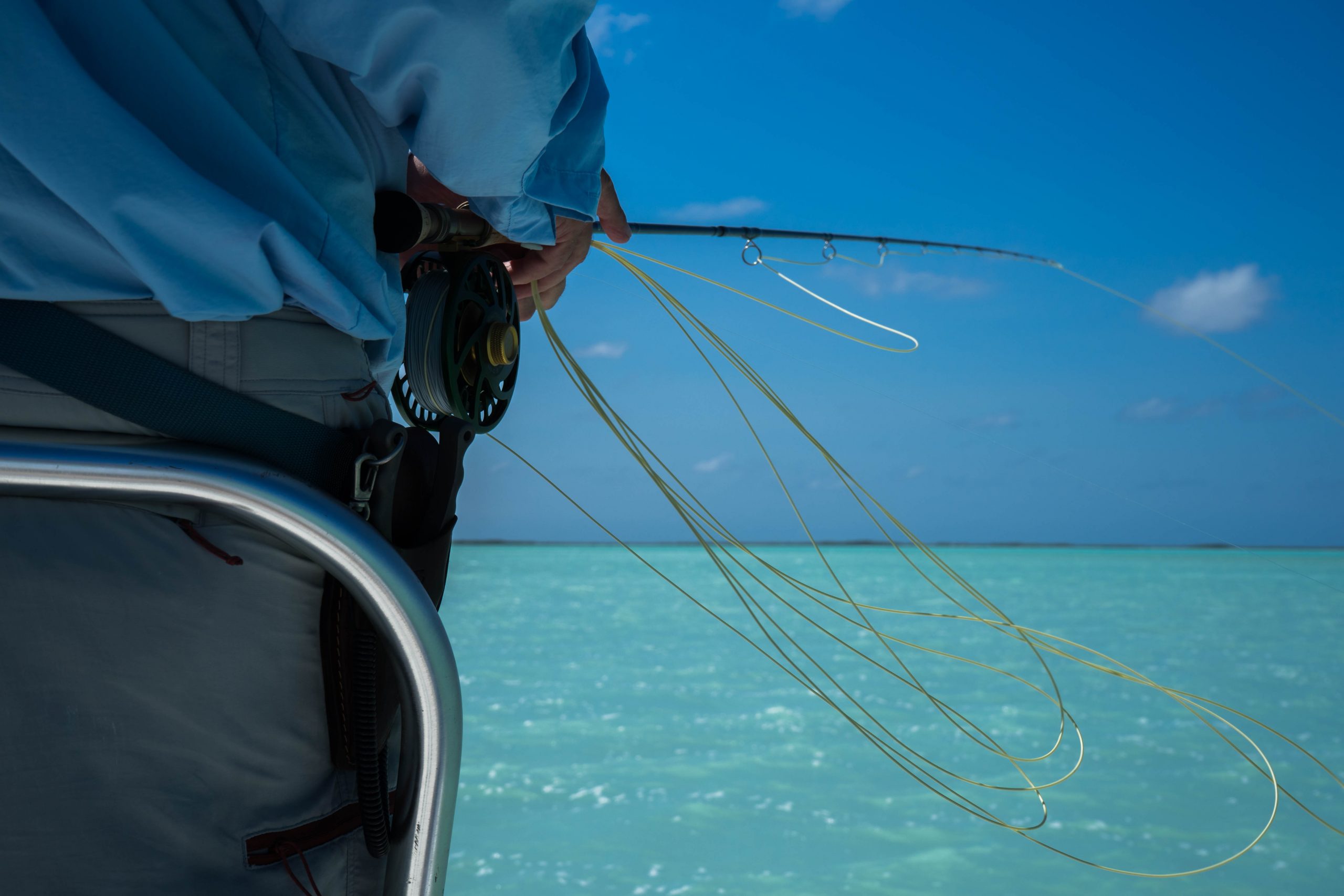

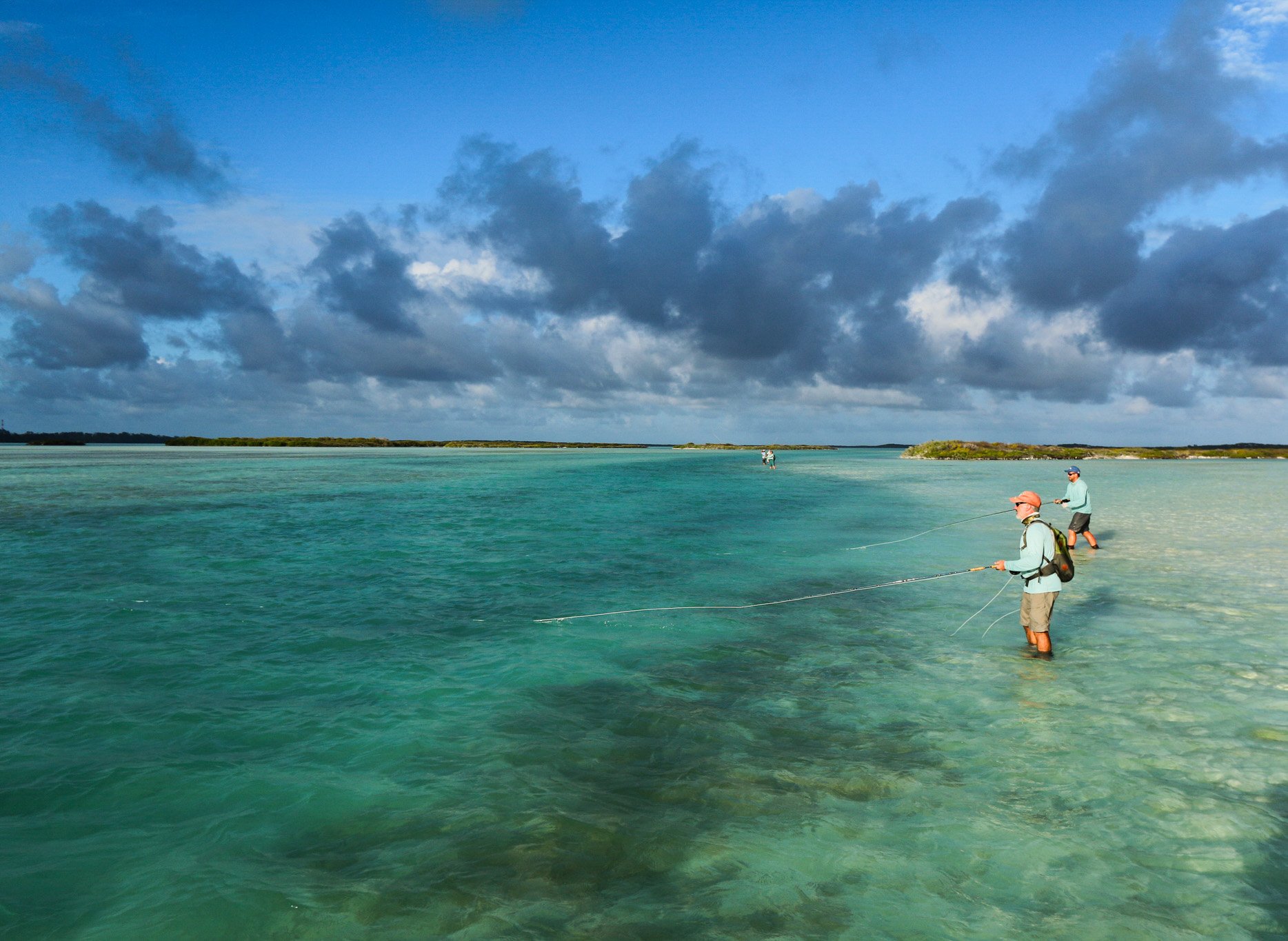

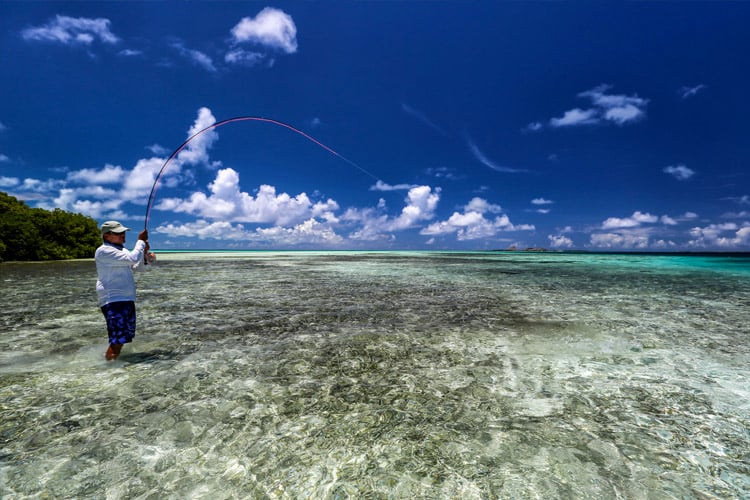

Flies
When selecting flies for saltwater fishing try not to pick the biggest brightest flies in the box straight away. Very often when fishing clear, shallow water the more subtle approach is the way to go, the fish that live in these types of water are very aware of what is entering their home and if you can place your fly close to them without spooking them they will often investigate. Often slightly underdressed patterns in colours like off-white, tan, grey, chartreuse and light yellow can have a great effect.
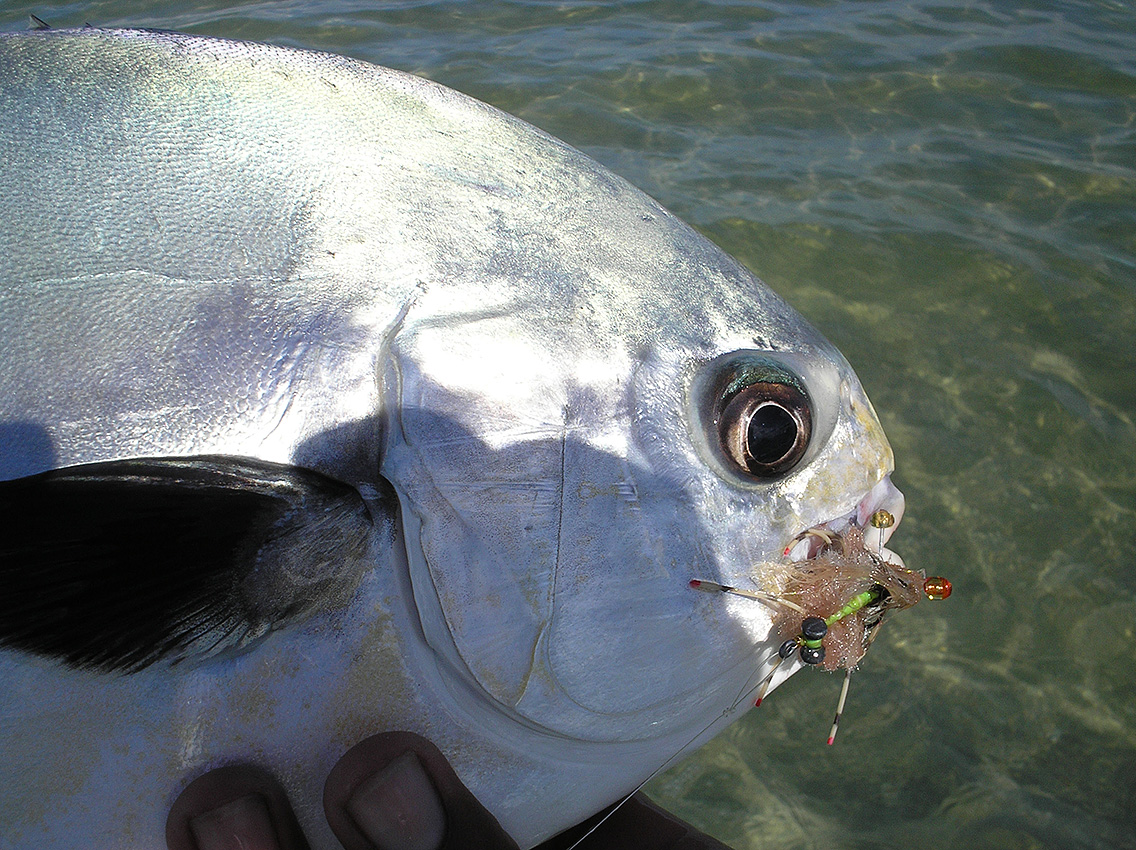

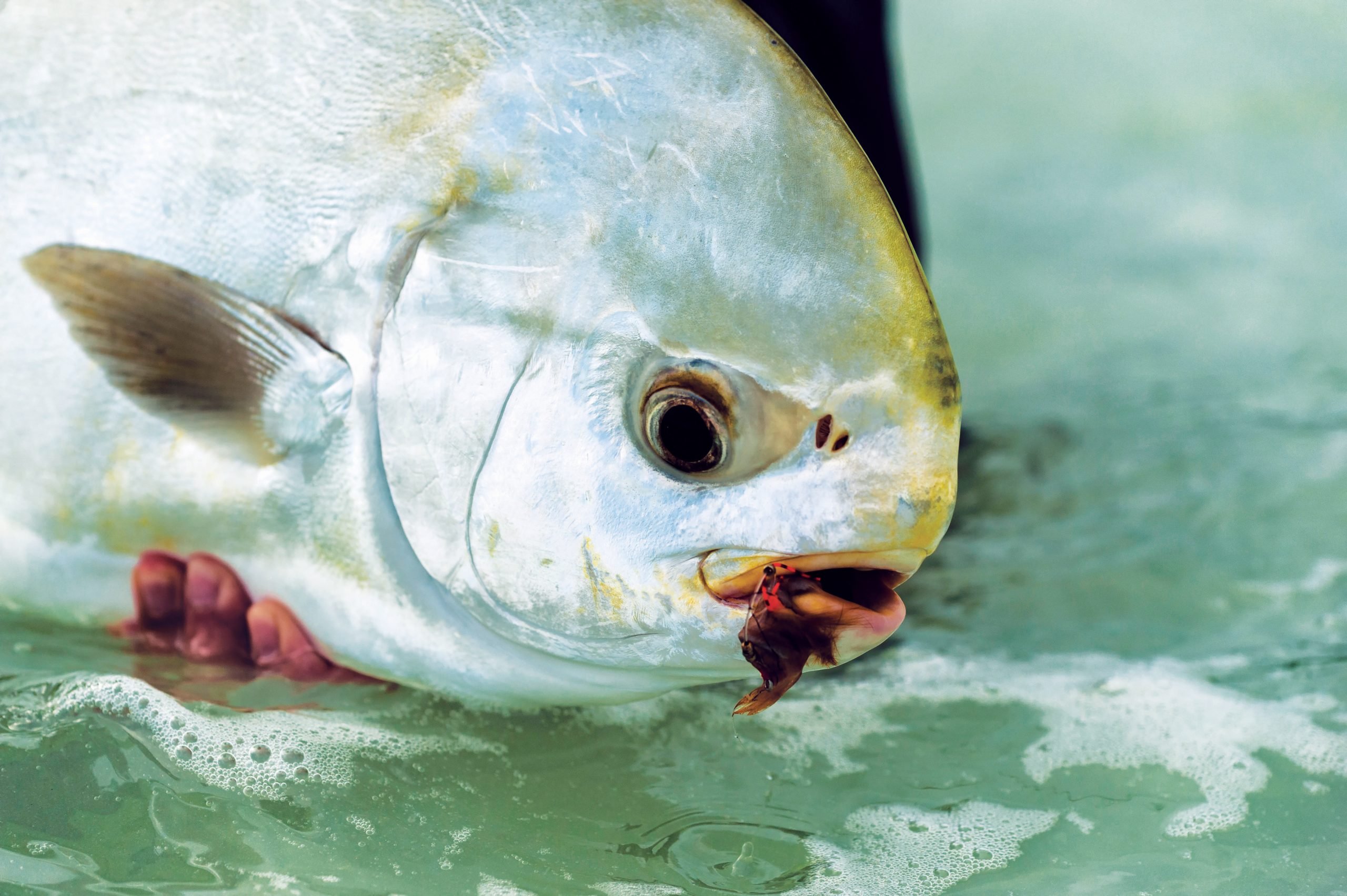

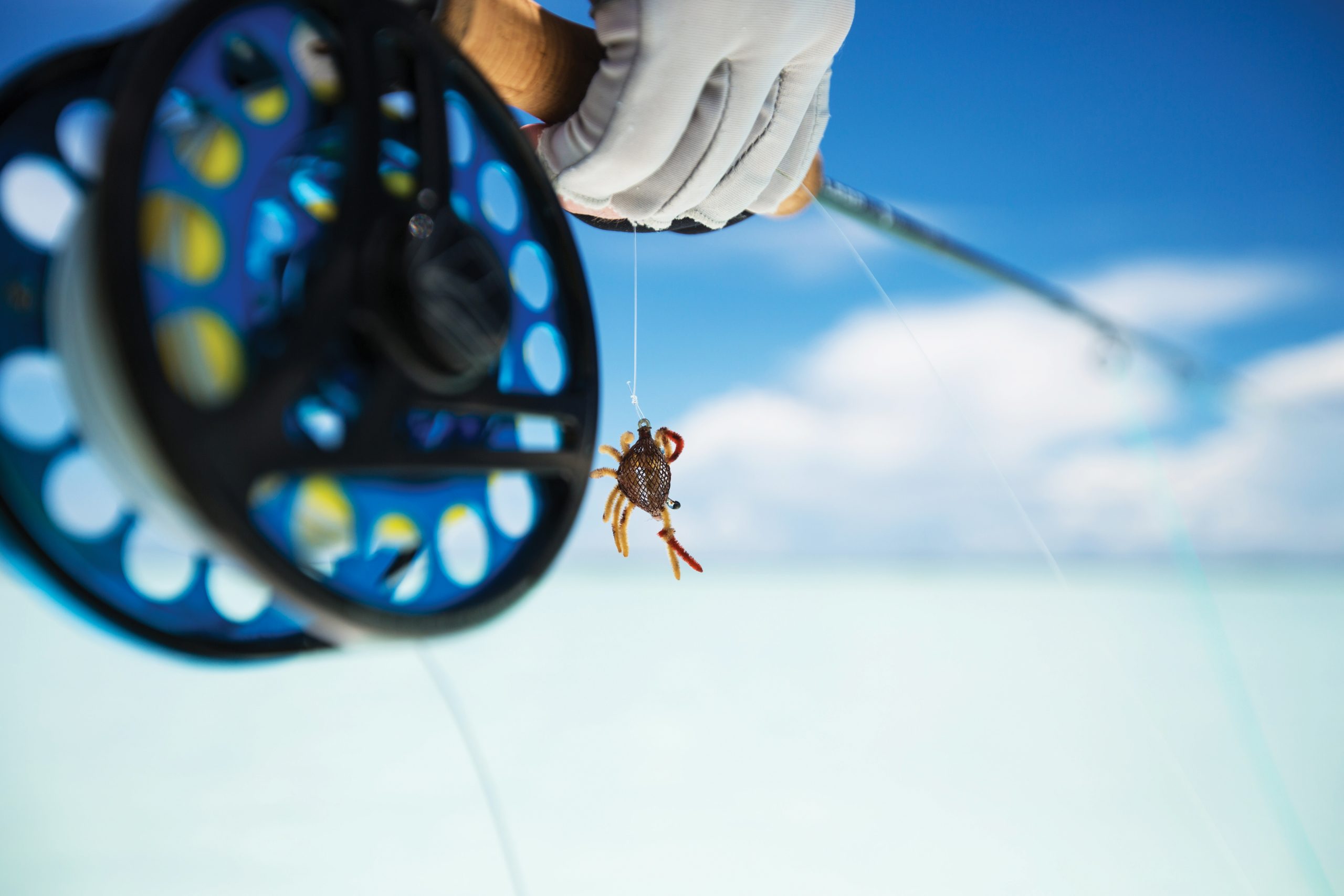

Do you have any tips on clear water casting? We would love to hear them. Leave them in the comments below.
Contact us
Do you like the sound of fishing Crystal clear flats? Looking to tackle some Bonefish or Permit on the fly? Take a look at our bespoke Saltwater tour pages here.
Take a look at all our fly fishing holidays here. You can also contact our fly fishing expert, Peter Colliungswoth, who has years of knowledge in clear water casting via emailing peter@sportquestholidays.com or call him on 01603 407596. Our experienced team will be happy to help answer any queries you have.
Tight lines,
Peter
